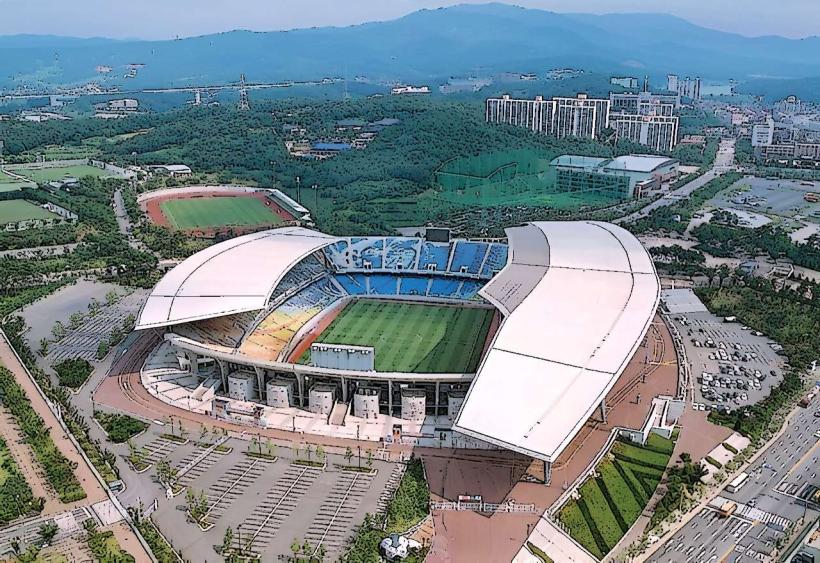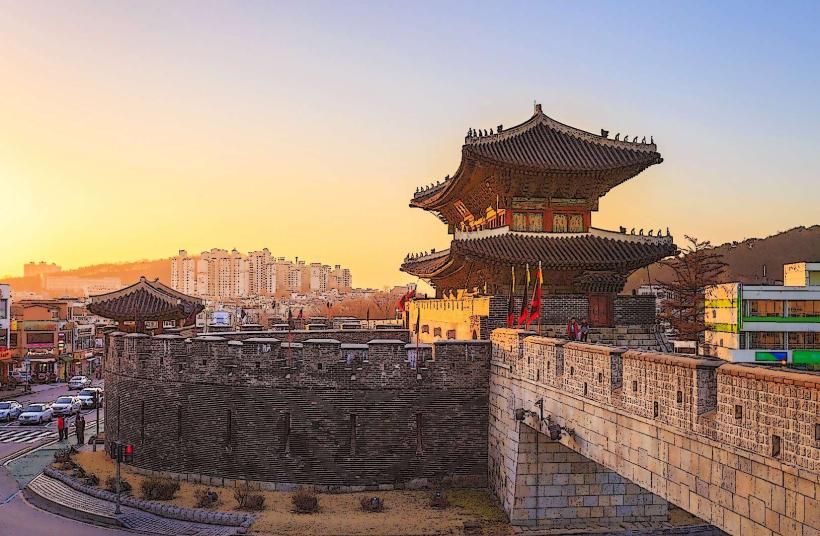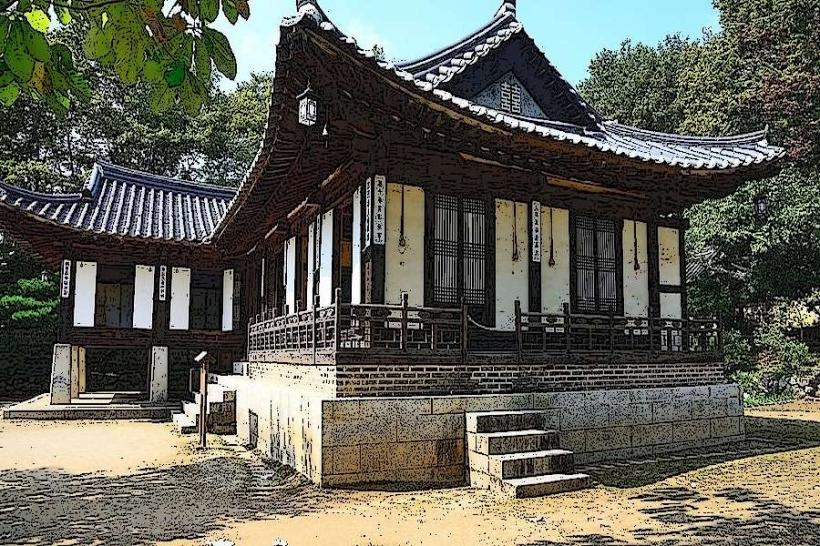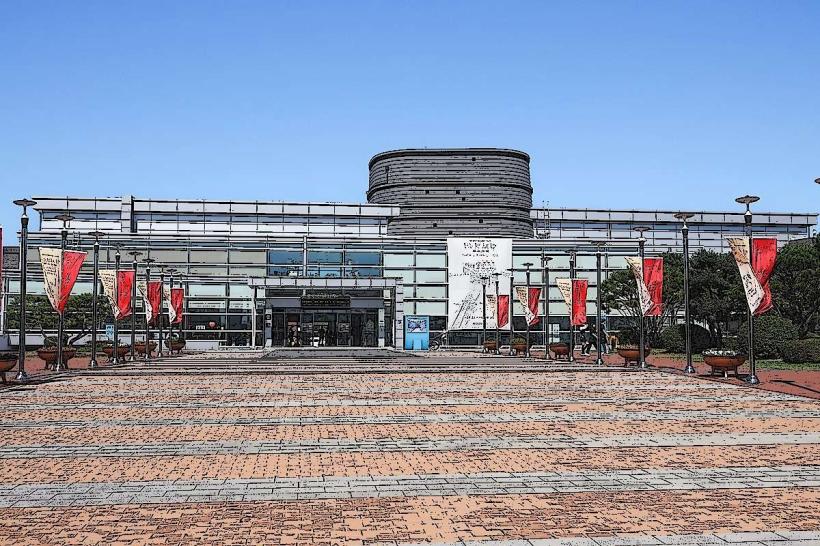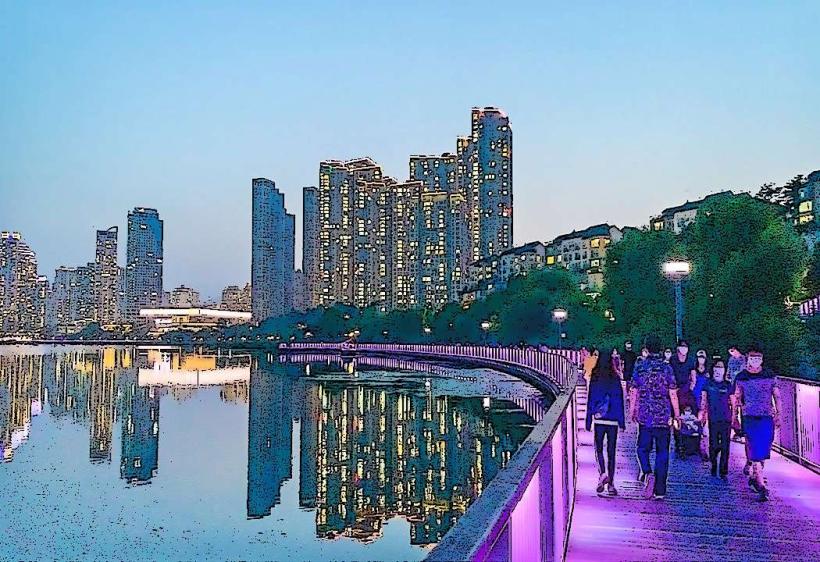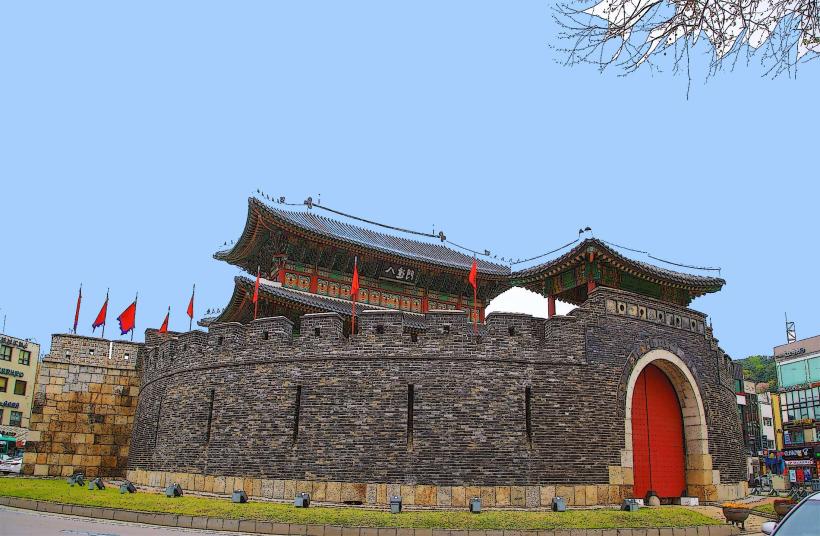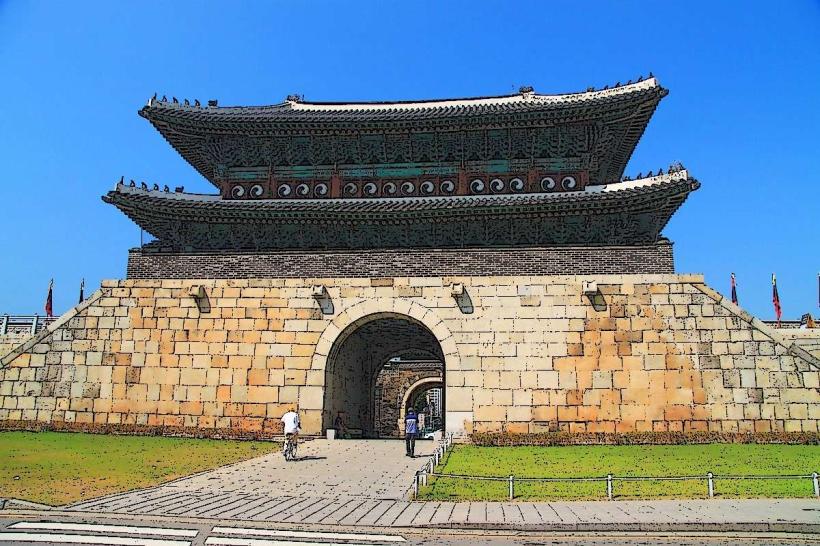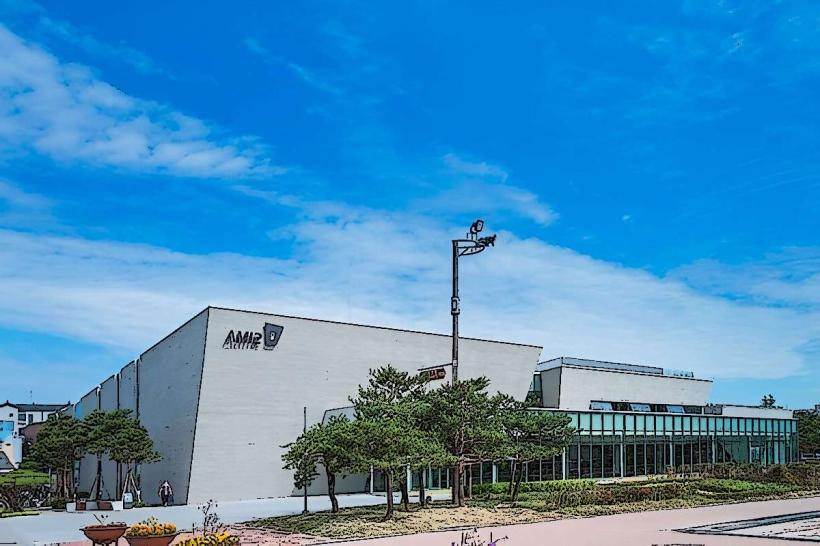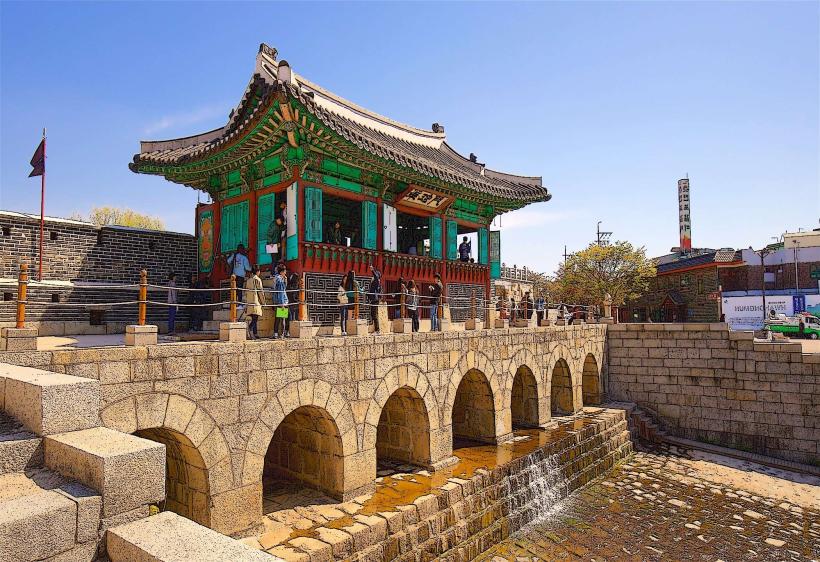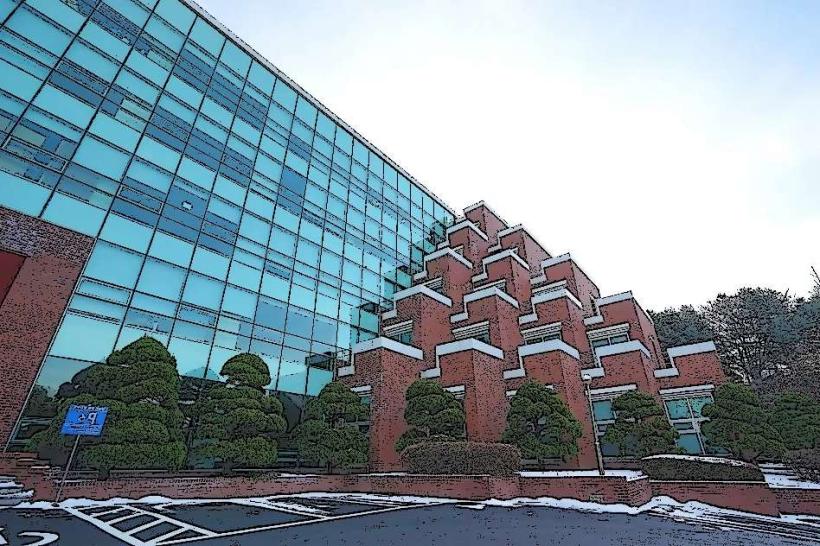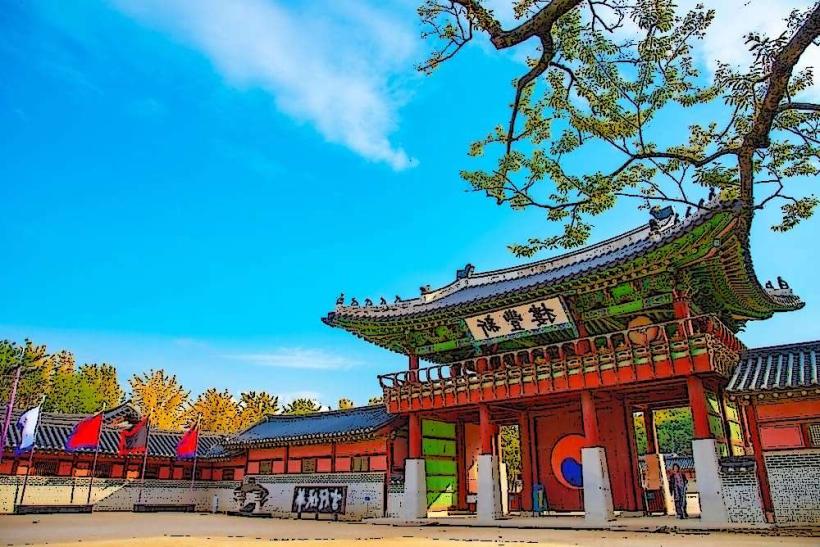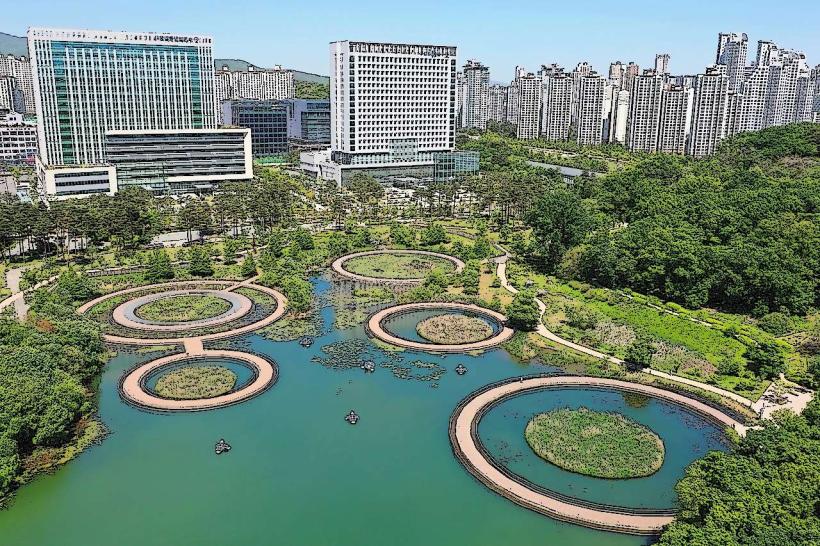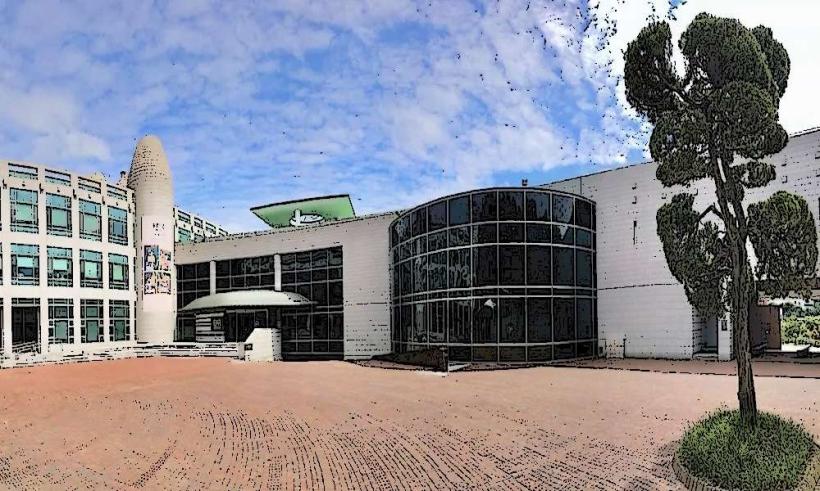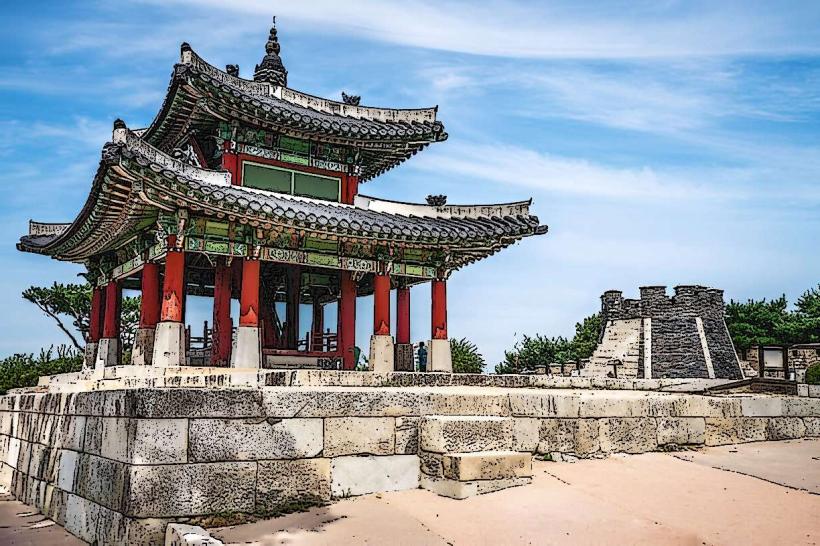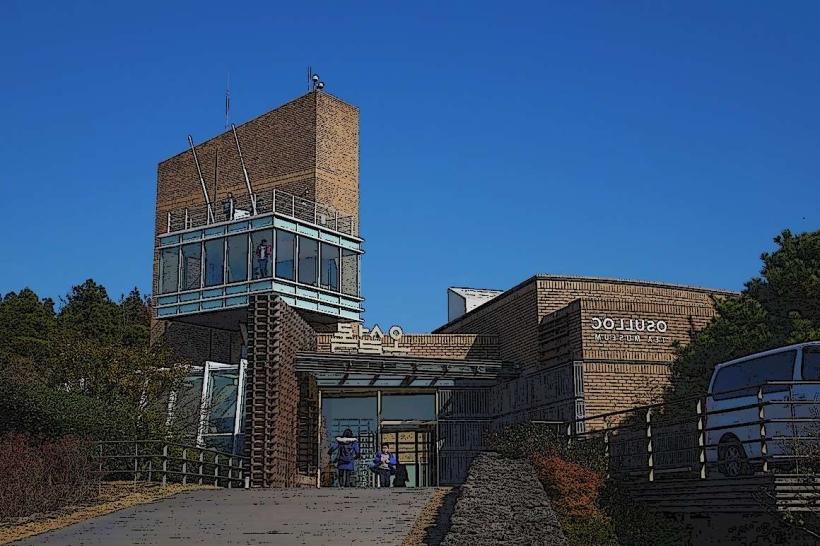Information
Landmark: Korean War Memorial SuwonCity: Suwon
Country: South Korea
Continent: Asia
Korean War Memorial Suwon, Suwon, South Korea, Asia
The Korean War Memorial Suwon (수원 한국전쟁기념관) is a museum and memorial located in Suwon, South Korea, dedicated to honoring the memories of those who fought and sacrificed during the Korean War (1950-1953). The museum serves as both an educational and commemorative space, offering visitors insight into the significant historical events of the Korean War, which had a profound impact on the Korean Peninsula and the world.
Overview of the Korean War Memorial Suwon
Location:
- The Korean War Memorial is located in Suwon, a city in Gyeonggi Province, just south of Seoul. The memorial is situated in a tranquil park setting, making it an ideal place for reflection and learning.
Establishment:
- The memorial and museum were established to commemorate the Korean War and educate future generations about the conflict's impact on Korea, the Korean people, and the international community. The museum is dedicated to preserving the memories of soldiers, civilians, and other individuals who contributed to the war efforts and survived the devastating conflict.
Purpose:
- The primary goal of the Korean War Memorial Suwon is to honor the lives lost during the Korean War, recognize the sacrifices of soldiers, and educate visitors about the causes, events, and aftermath of the war. It serves as a place of reflection for both Koreans and visitors from around the world who are interested in understanding the significance of the war.
Exhibits and Collections
The Korean War Memorial in Suwon features a wide variety of artifacts, exhibits, and displays related to the Korean War. These exhibits are designed to provide a comprehensive understanding of the conflict, its causes, and its lasting effects.
History of the Korean War:
- The museum offers a thorough account of the Korean War, from the division of Korea after World War II to the outbreak of the war in 1950. The exhibits cover key battles, significant military operations, and the roles played by various countries, including South Korea, North Korea, the United States, and China.
Personal Stories and Memories:
- One of the central elements of the memorial is its focus on the personal stories of those affected by the war. The museum displays personal belongings, photographs, and letters from soldiers and civilians, which offer emotional insights into the experiences of individuals who lived through the war.
Military Equipment and Artifacts:
- The museum houses a range of military artifacts, such as weapons, uniforms, equipment, and vehicles used during the war. These include examples of both South Korean and North Korean military gear, as well as that of United Nations forces that participated in the conflict.
Diagrams and Maps:
- The museum uses diagrams, maps, and multimedia presentations to explain the major military strategies and campaigns of the Korean War. Interactive displays allow visitors to gain a clearer understanding of key events such as the Battle of Inchon, the Pusan Perimeter, and the Battle of the Chosin Reservoir.
The Impact on Civilians:
- A significant portion of the exhibits is dedicated to the civilian suffering during the Korean War, highlighting the destruction of cities, villages, and the massive displacement of the population. This section emphasizes the war's human cost, including the loss of life, forced separations of families, and the long-term psychological and social impacts on the Korean people.
Role of International Forces:
- The Korean War Memorial also acknowledges the international dimension of the war, with a focus on the participation of the United Nations, especially the contributions from U.S. forces and other allied countries. There are also exhibits that recognize the role of China and the Soviet Union in supporting North Korea.
Post-War Effects:
- The museum explores the aftermath of the Korean War, particularly the armistice agreement signed in 1953, which ended active fighting but did not officially end the war. The exhibits also discuss the ongoing effects of the war, including the division of the Korean Peninsula and the continuing tensions between North and South Korea.
Memorials and Monuments
In addition to the museum exhibits, the Korean War Memorial Suwon includes several outdoor memorials and monuments dedicated to those who lost their lives during the war.
War Memorial Wall:
- The memorial features a wall inscribed with the names of those who died during the Korean War. This wall serves as a permanent tribute to the soldiers and civilians who lost their lives in the conflict.
Statues and Sculptures:
- The memorial park features statues and sculptures that commemorate the bravery of soldiers and the suffering of civilians. These artworks are designed to honor the sacrifices made during the war and to convey the tragic and heroic elements of the conflict.
Peace Bell:
- A Peace Bell is another prominent feature of the memorial, symbolizing hope for lasting peace on the Korean Peninsula and around the world. The bell serves as a reminder of the need for reconciliation and the ongoing pursuit of peace.
Monuments to Foreign Soldiers:
- The memorial also honors the contributions of foreign soldiers, particularly those from the United States and other United Nations forces, who fought alongside South Korean troops during the war. Monuments and plaques are dedicated to these international allies.
Educational Programs and Events
Guided Tours:
- The Korean War Memorial offers guided tours for visitors, providing deeper insights into the exhibits and the significance of the war. Knowledgeable guides lead visitors through the museum, explaining the historical context and the key events that shaped the course of the conflict.
Workshops and Educational Events:
- The museum organizes various workshops and educational programs for students, families, and groups, helping them better understand the history of the Korean War and its ongoing impact on modern Korean society.
Commemoration Events:
- The memorial hosts special events on significant anniversaries related to the Korean War, including the Korean War Armistice Day (July 27). These events often include ceremonies, lectures, and discussions on the war's legacy.
Visiting the Korean War Memorial Suwon
Opening Hours:
- The museum is generally open from 9:00 AM to 6:00 PM, but it may have adjusted hours during public holidays or special events. It’s recommended to check the official website for the latest information.
Admission:
- Admission to the Korean War Memorial Suwon is typically free of charge. However, some special events or temporary exhibits may have a small fee.
Accessibility:
- The memorial is easily accessible by public transportation, including buses and subways. It is located near the Suwon city center, making it easy to visit while exploring other attractions in the area.
- Parking is available for visitors traveling by car.
Facilities:
- The memorial includes gift shops where visitors can purchase books, souvenirs, and educational materials related to the Korean War. There is also a café where visitors can relax and reflect on their visit.
Conclusion
The Korean War Memorial Suwon is a significant cultural and educational institution that serves to preserve the history of the Korean War and honor those who lived through its hardships. It provides visitors with an in-depth understanding of the war’s impact on Korea and the world while also promoting messages of peace, reconciliation, and remembrance. Whether you're a history enthusiast, a student, or simply someone interested in learning about the Korean War, the memorial offers a poignant and informative experience.

